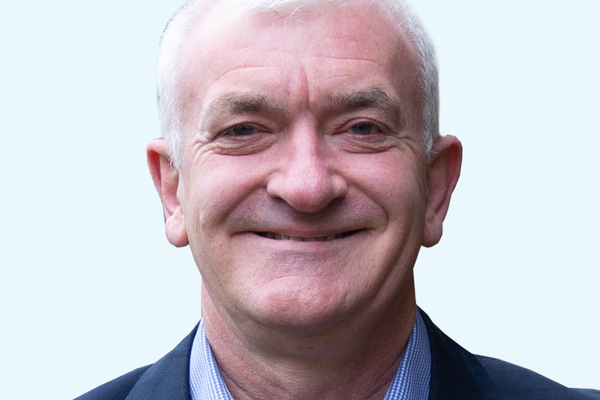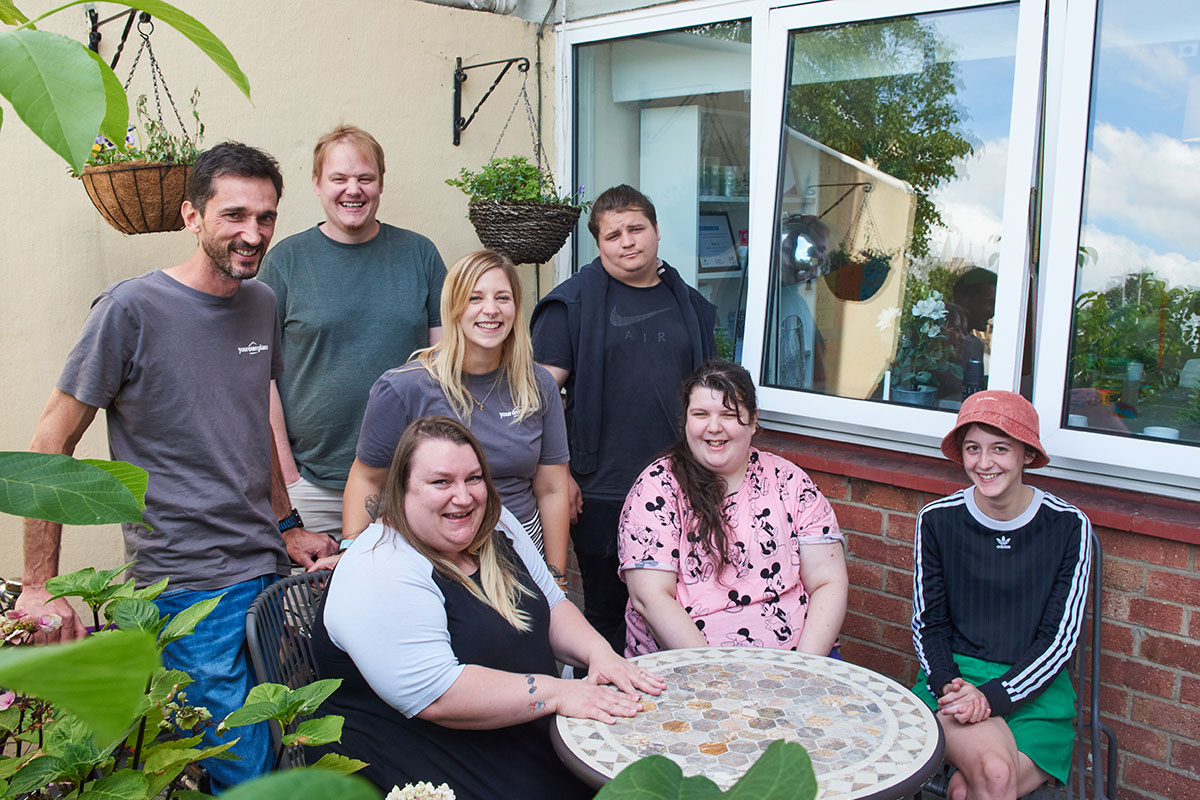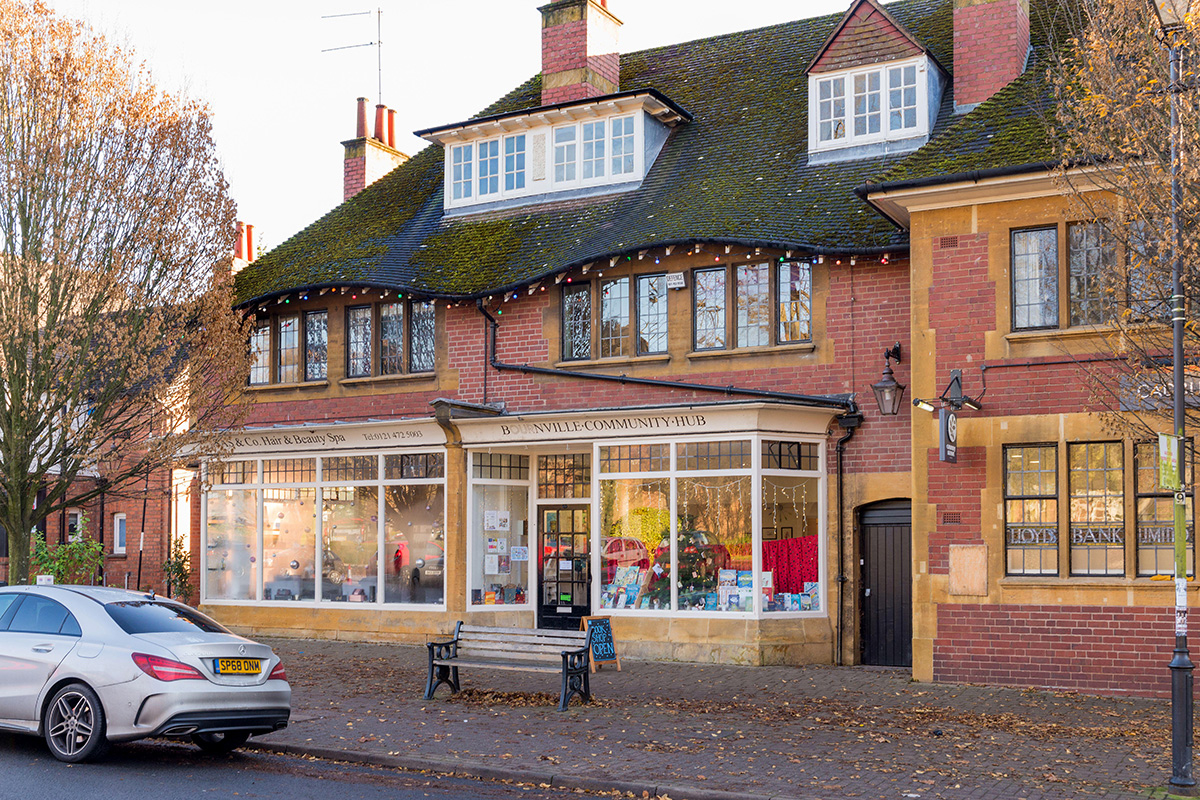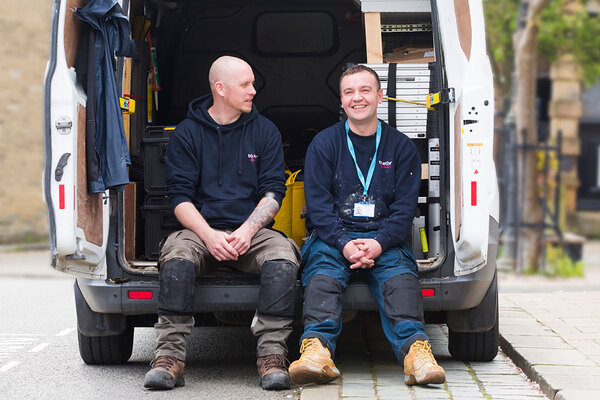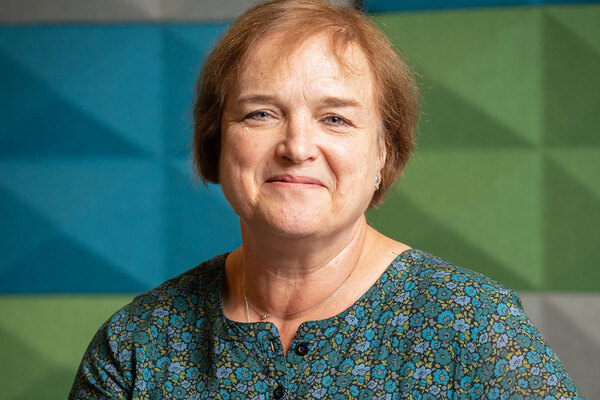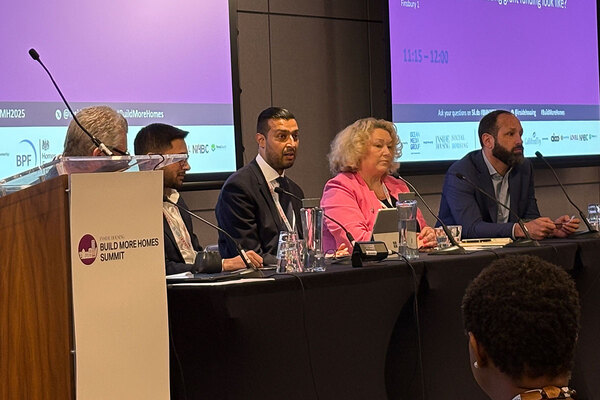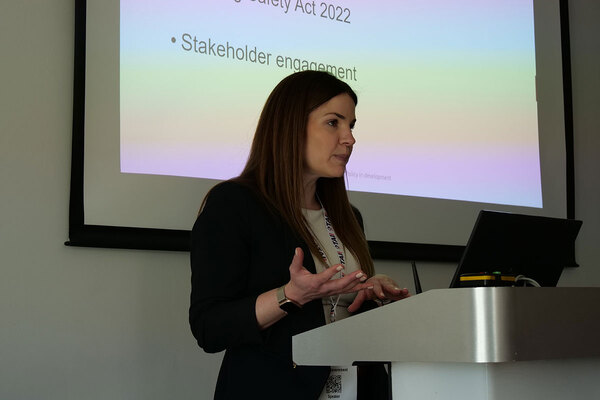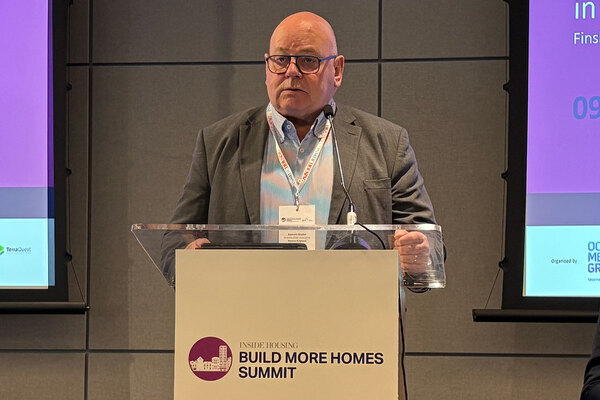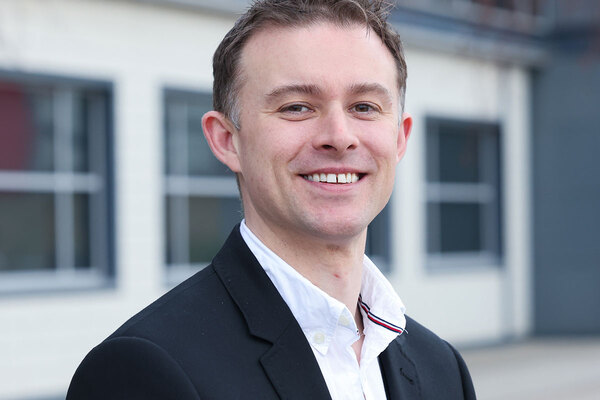How two Welsh housing associations are getting tenants involved in decision making
Two Welsh housing associations are taking new approaches when talking to residents and involving them in the decision-making process. Faima Bakar finds out more. Illustration by Joanna Gniady
“I am very pro my housing association,” says Peter Smith-Hughes, chair of the resident committee at ClwydAlyn. “I believe engagement is about listening and acting upon what is said. Are ClwydAlyn’s methods effective? Absolutely. Residents have been able to challenge things and executives have listened.”
This is the sort of praise that would be music to the ears of most social landlords.
In January, housing secretary Michael Gove stood up in parliament to “name and shame” another three social landlords – bringing the total number criticised in this way to 14.
The Grenfell tragedy, and then the death of two-year-old Awaab Ishak, have been described as turning points for the sector – meant to bring about a complete change. And key to that change is listening to tenants and prioritising their needs. Inside Housing spoke to two housing associations in Wales that pride themselves on taking a different approach, to see what the wider sector can learn.
Take Mr Smith-Hughes’ landlord, ClwydAlyn, which oversees 6,000 homes. “Within Welsh housing associations, there has been a big push to ensure the voices of residents are heard,” he says.
“I am proud to say we now have full discussions on [recent] rent increases and have serious input into the final figure [at press time, the final figure had not yet been agreed by the association’s board]. We have asked for service charge costs to be looked at, and there is a big piece of work being done on this. We asked for resident presence on all of the committees, [meaning] assurance, property, people, board members,” he continues.
“This gives us the ability to understand what policies are going to affect residents and, importantly, challenge them – which we do. I feel there has been so much effort put in to improve residents’ well-being, ie zero evictions, community work, food vouchers, job-finding support.”
This is echoed by ClwydAlyn’s staff. Suzanne Mazzone, executive director of housing services, says: “We wanted to work more in partnership with our residents and do things with them rather than do things to them.”
What does that look like in practice? ClwydAlyn developed a new resident involvement strategy in 2020 that was led by resident group Tpas and residents.
This input led, the association says, to “creating more informal opportunities to engage with the harder-to-reach residents, to broaden the views from just the dedicated and long-term commitment of a core group of residents”. Some of the changes it made as a result include adding digital engagement options and informal in-person drop-ins.
It has also set up an ‘influencer team’ – made up of volunteer residents who can liaise between the housing association and tenants, and who do mystery shopping of current services to explain what is working well and what isn’t.
“We wanted to work more in partnership with our residents and do things with them rather than do things to them”
The resident ‘influencers’ sit on recruitment panels when the association makes new hires. One change that was made as a result of their feedback was reducing how often the ground maintenance teams cut the grass, which allowed ClwydAlyn to reduce service charges. Another change was adding a communications person to the association’s development team, with the aim of improving the engagement of tenants moving into new builds.
ClwydAlyn also divided its remit into several areas, with a committee focusing on different areas, including a resident committee, and a people, assurance and property committee, which can overlook the business structure of the organisation.
ClwydAlyn has also reduced the size of its community patch areas from between 500 and 600 homes per officer to under 250 per officer. With housing officers having fewer properties to manage, they can build relationships with residents. This took place in August 2021, and ClwydAlyn says that 85% of tenants have now been visited by their housing officers. The change was accomplished by moving away from specialist teams (with officers focusing just on anti-social behaviour, income management and housing), to all officers being “generic housing officers”.
Helping tenants
The association says it has also attempted to move away from a punitive relationship with tenants, limiting tenant evictions and avoiding punitive measures for anti-social behaviour (ASB).
Ms Mazzone says: “We don’t want to create tenancies, we want to create homes where people feel safe and secure, where they can actually put down roots.”
Clare Budden, chief executive at ClwydAlyn, says: “Our whole approach to the business now is about how we keep people in their homes and in their tenancies.
“We do everything we can to enable people to maintain their tenancy rather than seeing it as a transactional arrangement between us. We have a relationship of trust with the tenant and they’ll feel comfortable sharing things with us, whether it’s arrears, anything to do with mental health, physical health, poverty and hardship.”
Ms Budden and Ms Mazzone have worked in statutory homelessness services, so have been on the other side of local authorities and evictions – something they are trying to end. Only used as a last resort, the housing association issued five NOSPs – notice of seeking possession – in 2022, when a few years ago there would have been closer to 300.
Ms Budden adds: “If people make mistakes, we fix it. I’m not blaming residents for decisions that they might have made that put them in a difficult situation. We need to look at where we are going in the future and how we work, so we’re trying to stop NOSPs because we’re about building relationships with residents. You can’t build a relationship with a resident and leave them with a threat at the same time.
“If we throw the rulebook at people and go down a punitive approach, all we’re doing is breaking trust and perpetuating poverty.”
This different approach also extends to anti-social behaviour, an area where housing associations usually take an enforcement role, sometimes working with police. ClwydAlyn has relabelled ASB as ‘resident concerns’.
Hannah Jones, its specialist intervention officer, explains: “The easiest option really would be the standard process: issuing warnings, going down hard on people and introducing law enforcement and punishment. But we recognised how important it was to really look at the root cause of the problem and quite often, there’s a lot more to the behaviour than we see.”
“Whatever demographic [residents] come from, whatever barriers they face, we give them a way to speak to us, and tell us what’s on their mind”
Ms Jones’ role involves treating each individual on a case-by-case basis, where she and the team consider the different needs and backgrounds of those involved.
“We have a whole host of ways of resolving problems that we face within patch areas and that might include supportive intervention, it might mean housing officers going that extra mile, taking the time to speak with people,” she says. “And I think when you talk to the complainant, a lot of their frustration is about not being kept in the loop. So we’ve taken a lot of time to speak with all the people involved.”
The association says that there might be occasions when it has exhausted all other options, so may have to get law enforcement involved. A spokesperson says that since the change was implemented, “we have not taken any direct law enforcement action such as an injunction or issued an NOSP. However, we have worked closely with our partner agencies, which have (with our assistance) issued interventions such as community protection notices and warnings along with closure orders. Our approach to tackling resident concerns has seen an reduction in law enforcement measures over the past 12 months.”
Involving tenants
ClwydAlyn is also involved with the wider community beyond its own tenants. Given the high cost of living, it has set up ‘warm hubs’ around Wales where support and advice is accessible. In partnership with Warm Wales, the ‘Healthy Homes, People, Lives & Community’ project is tackling fuel poverty, reducing avoidable health inequality, and improving health and well-being. This is in addition to targeted support for residents, a direct line for people having issues paying their energy bill and a social enterprise offering free and discounted food.
Ms Budden is chair of the 2025 Movement, a group of more than 600 people and organisations across North Wales that are working together to tackle avoidable health inequalities across the region.
She says: “It’s great to see so many partners joining together to open up their spaces, from libraries to community centres, to provide local people with a warm and safe space that they can visit to help if they are struggling to heat their homes. Everyone involved in 2025 has long been committed to working together to do all we can to tackle inequality and is another example of the difference we can make by joining forces.”
To make the warm spaces as sustainable as possible, the decision was made to open up existing spaces to the public. ClwydAlyn is opening up the cafes in its extra-care centres, offering a free hot drink, soup and a roll.
ClwydAlyn’s near neighbour North Wales Housing (NWH) is taking a similar approach. “We’re not trying to reinvent the wheel,” admits Stephen Kay, neighbourhood officer at 2,733-home NWH.
“What we’ve been doing over the past couple of years is blending in some modern methods of communication, insights and engagement, while keeping the traditional principles. We try to give our residents a broad package. So whatever demographic they come from, whatever barriers they face, we give them a way to speak to us, and tell us what’s on their mind.”
“To deal with the cost of living crisis, we have an income management team which has been trained up in providing advice”
In material terms, this tenant-first approach looks like small patch sizes for staff of up to 600 properties and empowering their frontline teams to make decisions and be more visible on the ground, he says.
It aims for neighbourhood officers, community safety officers and income management teams to get to know people on a personal basis and learn about individual circumstances.
“What our community safety officers do,” explains Mr Kay, “is regular follow-up inspections, as well as minor repairs. Any sort of minor issues that can be fixed quickly can be done within 24 to 48 hours. We also consider how we can provide a more rounded service so the conditions don’t get that bad. We have our own suppliers and inspectors, as well as a team of labourers who carry out the majority of the work on our properties. So we’ve got an ownership of that to a large degree, so people’s needs are met as soon as possible.”
Allan Eveleigh, assistant director of communities at NWH, adds: “For residents who are less engaged with us, we have activities to get people to come out and get communication going. We do welfare calls on a regular basis and these are not just phone calls – we knock on doors, do the rounds, make sure everybody’s OK. We also have a customer experience team which works solely on improving tenant engagement. To deal with the cost of living crisis, we have an income management team which has been trained up in providing advice. We have drop-in sessions where we engage a financial advisor to come and spend some time with residents.”
NWH also has Welsh speakers within its teams, and refers to its active social media presence including TikTok and Twitter. But when not everything is rosy, tenants have a voice to get their opinions across in something called Rant and Rave.
“This is basically a platform for our tenants to say exactly what’s on their minds,” explains Mr Kay. “It gives us some good insights into what’s going on.”
For tenants who want to get things done without having to speak to people, there is also a self-service option where they can handle their accounts.
So what impact does NWH hope this will have on residents?
Mr Kay says: “As time goes on, we’re gathering a lot of information about the community. All these methods give us a good idea about what’s going on, what everybody needs, what will make our residents happy and make us an even better housing association.”
Sign up to our Best of In-Depth newsletter
We have recently relaunched our weekly Long Read newsletter as Best of In-Depth. The idea is to bring you a shorter selection of the very best analysis and comment we are publishing each week.
Already have an account? Click here to manage your newsletters.

